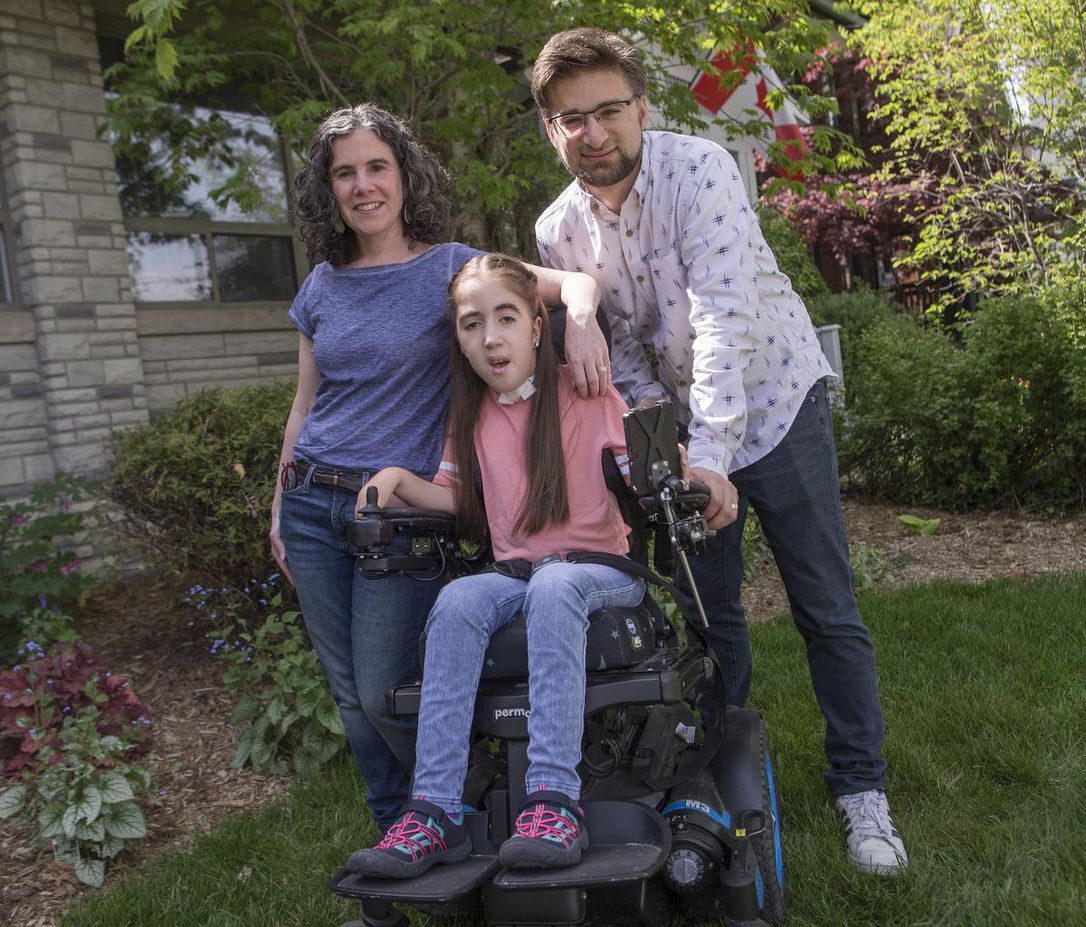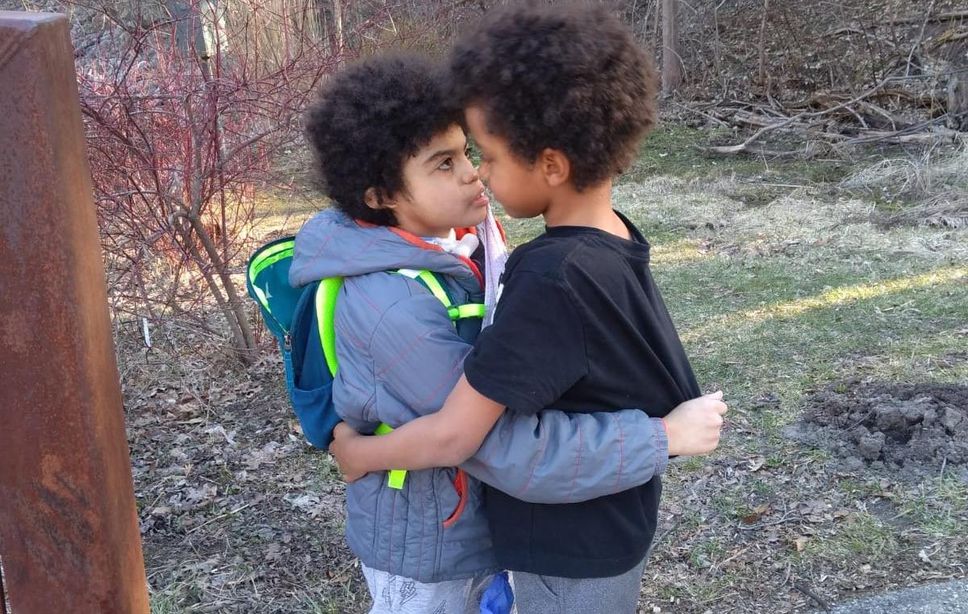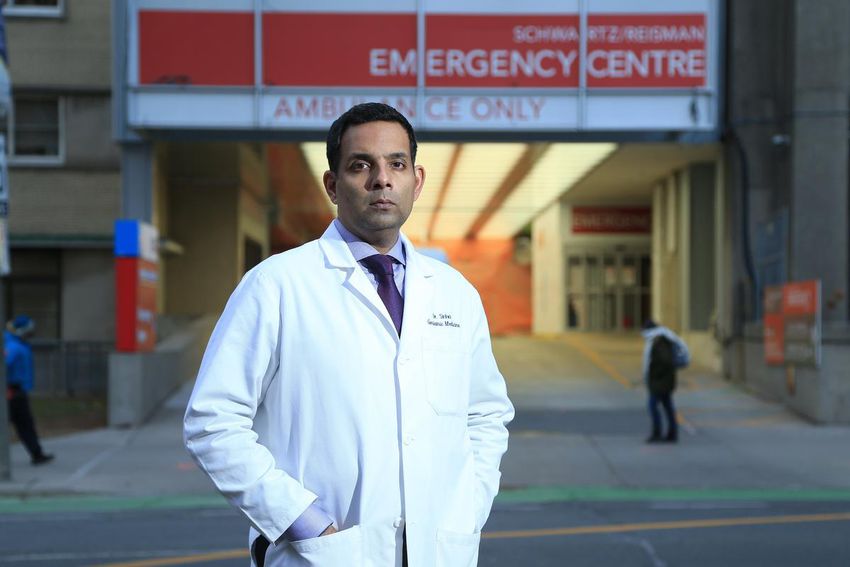Toronto Star: “When privacy and public health clash: Vulnerable families face fear and frustration not knowing if health-care workers are vaccinated”

Alison Engel-Yan worries her immunocompromised daughter may be in close contact with an unvaccinated nurse, but the mother of three doesn’t know for sure, despite her best efforts.
This lack of transparency is a result of privacy legislation that hinders Ontario families from learning whether or not their health-care workers are vaccinated against COVID-19, causing some to fear that the very people who are supposed to be protecting their health may be threatening it.
When vaccines were first rolled out and health-care workers prioritized, Engel-Yan began asking the home-care and school nurses who care for her 10-year-old daughter Gavi if they had booked vaccine appointments, expressing “genuine excitement” at the prospect.
“You’re so lucky … I’m jealous … we can’t wait to protect Gavi,” Engel-Yan told the nurses. Three confirmed that they had scheduled jabs, but the fourth expressed a desire to delay the vaccine whenever she was asked. The family could sense some hesitancy. So they called the nurse’s agency, VHA Home HealthCare.
“We were told we are allowed to refuse service, but they will not replace her and they will not guarantee a vaccinated nurse,” Engel-Yan said. Management also asked the worried mother to stop questioning the nurse about being immunized, so as not to make her feel pressured.
For families like Engel-Yan’s, that’s where privacy and public health clash. When health-care workers come into their homes, families can be told to tie up their pets or refrain from lighting scented candles or wearing perfume — to protect the workers. But for privacy reasons, the nursing agencies won’t disclose whether or not a worker is vaccinated.
Gavi is smart, fun and engaged, her mother said. She’s one of many kids at a significant risk of severe COVID. She has a physical disability, caused by a muscle condition (nemaline myopathy), and as a result has respiratory compromise. Gavi has a tracheostomy tube and uses a ventilator at night, which helps her breathe, requiring nursing care overnight, Engel-Yan said. Nurses also accompany Gavi to school — she “can’t wait” to be back in person for Grade 6 in September.
But because she’s under 12, she’s not yet eligible for a vaccine. According to the Ontario government’s criteria for vaccine eligibility, Gavi’s condition would place her in the highest risk category, her mother said. Reports of the highly infectious Delta variant ripping through unvaccinated populations and the risk of breakthrough cases even in those fully immunized only add to Engel-Yan’s concern.
“Gavi is particularly vulnerable to an unvaccinated health-care worker,” said Engel-Yan, a 44-year-old Toronto lawyer. “Every adult and caregiver in her life is vaccinated except (possibly, the one nurse).”
A spokesperson for VHA said the agency was “previously encouraging discretion” in sharing vaccination status information to protect the privacy of workers, but recently changed its stance. VHA nurses and staff may voluntarily disclose their vaccination status “if they choose to do so,” but disclosure is “not mandatory,” the spokesperson added.
Should they voluntarily choose to disclose their status, asymptomatic and fully vaccinated workers can circumvent being tested for COVID before entering long-term-care homes and retirement homes, after recent policy changes by the Ministry of Health (download PDF), the spokesperson said.
VHA is “moving towards” implementing a policy used in long-term-care facilities and retirement homes, in which staff and service providers will be required to show proof of vaccination against COVID, a medical note with a reason for not being jabbed, or the completion of an educational program about the benefits of being immunized and risks of not being vaccinated.
“In the meantime, we are putting in place the supports needed to gather this information from our teams,” the spokesperson said.
For her family of five, with two full-time working parents, going without nighttime nursing care is not an option, Engel-Yan said. They’re supplied with nurses through the Local Health Integration Network (LHIN), which has contracts with home-care providers.
A spokesperson for LHIN’s home and community care support services said the vaccination status of all LHIN staff can’t be disclosed in order to “ensure we are protecting the personal health information of our employees.”
Employees self-screen for COVID-19 at the beginning of their shifts, as well as midway through the day at minimum, the spokesperson said. “If any of our employees are experiencing any symptoms, they are not permitted to visit a patient’s home.”

Dr. Anna Banerji (photo credit: Toronto Star)
Dr. Anna Banerji, a pediatrician and infectious disease expert at the University of Toronto’s Dalla Lana School of Public Health, said if institutions can’t ensure patients are treated in a safe environment, they “need to do something differently.”
“If you’re a parent of a child with a disability, it should be your right to say, ‘I don’t want to put my child at risk and have someone who’s not vaccinated come into my space and potentially infect my child,’” Banerji said. Immunocompromised children infected with COVID are susceptible to becoming very ill and being hospitalized, she added.
“People talk about privacy issues, but there are other issues here, like the right to safety and the right to life,” Banerji said.
It’s time for the province to mandate vaccines for health-care workers, especially those working with populations at high-risk of infection, she added.
“It’s not about your individual choice; it’s about that patient’s or child’s safety,” Banerji said. “If someone believes they don’t need to get vaccinated, and they’re working with vulnerable people, then they’re in the wrong profession.”
A spokesperson for the Ministry of Health said “the COVID-19 vaccine will not be mandated for Ontarians,” however the ministry “strongly suggests” people “embrace the opportunity now that four vaccines have been approved by Health Canada.”
The Ontario Medical Association, which represents the province’s doctors, and the Registered Nurses’ Association of Ontario both recently called for mandatory COVID-19 vaccination of health-care workers.
Mairead Cavanagh’s son requires 24-7 “eyes-on care.” Maleek, 13, breathes through a tracheostomy tube in his neck. He has an open airway, and a gastric feeding tube in his stomach, as well as an implanted central line in his chest for intravenous access. He also requires full-time nursing in order to attend school.
Cavanagh, 47, is part of a family-managed home-care program, which means she can bypass agency services and hire health-care workers directly. That gives her the ability to ask potential home-care nurses to disclose their vaccination status informally.
School nursing contracts are not family managed; they’re provided by agencies through the LHIN in co-ordination with the Toronto District School Board. The LHIN has informed Cavanagh they can’t guarantee a school nurse would be vaccinated, and she’s not permitted to request that information. Maleek’s classmates all have physical disabilities, making them a very high-risk group.

Maleek Cavanagh (Photo courtesy of Toronto Star)
“My son is very medically fragile … things like a cold or pneumonia or the flu could be potentially life-threatening,” Cavanagh said. He’s been fully vaccinated, despite the short-term toll the first dose had on his health.
For the past year and a half, Maleek has been out of school due to hospitalizations, surgeries and COVID closures. And with the province’s school safety guidelines for the fall not yet released, Cavanagh said she feels “caught between a rock and a hard place.” School is “critical” for Maleek, because he has access to occupational therapy, physiotherapy, speech and language therapy. She wants him to benefit from those services.
“I won’t sugar-coat it. I don’t want my son to die at school because a health-care provider isn’t vaccinated,” Cavanagh said. “We’re fighting, fighting, fighting … it never even occurred to me that I would have to ask for his nurses to be vaccinated, that it wouldn’t just be the standard.”
She said “it’s utterly one-sided” that patients’ health information is shared and distributed freely within the circle of care, yet parents can’t expect “even a modicum of basic standardization of vaccines” for formally registered health-care providers.
“I have people that come into my home, adjust the heat, break dishes and equipment. It’s not easy. This illusion that health care and privacy somehow go hand in hand is just nonsensical,” Cavanagh said.
A spokesperson for Saint Elizabeth Health Care (SEHC), an agency that provides home care in Ontario through LHIN and has approximately 20,000 clients across Canada daily, said staff “are free to disclose their own individual vaccination status to patients and families, if they wish and feel comfortable to do so.”
“At this point, we are not aware of any exceptions,” the spokesperson said.
Beginning this month, the University Health Network, Ontario’s largest hospital network, will require workers to voluntarily submit their vaccination status, and if they don’t wish to disclose, those individuals will have to undergo frequent testing.
But with most paid home care in the province coming from government-funded agencies, the vaccination status of the majority of agency workers is unknown, said Dr. Samir Sinha, director of Geriatrics at Mount Sinai and the University Health Network Hospitals in Toronto.
“The government is operating to a certain extent in the dark, as are the home-care agencies,” he said. Care co-ordinators who manage the contract between the family and the provider won’t be able to disclose vaccination status, as agencies haven’t informed them either.
Those who are concerned about older family members, someone who is immunocompromised or a child receiving care from an unvaccinated individual, may have to turn to the private sector, Sinha said.

Dr. Samir Sinha (photo courtesy of Toronto Star)
Sinha said he’s helped patients who have caregivers they pay directly facilitate vaccination conversations and helped workers get the jab — because often the providers are willing to be vaccinated, they have just faced barriers in doing so.
A June report from the Royal Society of Canada (Download PDF) showed the risk factors for home-care patients with COVID-19 are similar to those living in facilities. Home care is also more common for those with lower socioeconomic status, which adds an additional layer of susceptibility to COVID-19.
“Ironically, we have a larger, vulnerable population receiving government-funded home care, and this entire population is not guaranteed to know whether those who are caring for them have been vaccinated at all,” Sinha said.
“Based on Canada’s COVID-19 infection rate up until the end of November 2020, it’s estimated another 6,000 COVID-19 related deaths last year involved home-care recipients, according to the report.
The vulnerability of seniors and children who are unvaccinated and receive home care makes it shocking that the province hasn’t implemented mandatory vaccination for all health-care workers, said Tracey Tremayne-Lloyd, a lawyer specializing in health law and founder of TTL Health Law.
“The fact that they are not tracking it is not because they can’t; it’s because they don’t want to. They think it’s a political hot potato,” she said.
For those looking for providers, there is the right to ask if they have a vaccination policy and to ask individual providers if they aren’t vaccinated, she said.
“Everybody’s hiding behind the protection of personal health information. The fact of the matter is, each person has a right to keep their own health information private. But it’s perfectly appropriate to ask: ‘if you’re sending people into my home, are your workers all double-vaccinated?’ ” she said.
In a statement to the Star, the Home Child Care Association of Ontario, which represents over 70 agencies licensed by the Ministry of Education, said providers can voluntarily share their vaccination status with clients and families can request a vaccinated provider.
“The licensed agency would seek permission from the provider to voluntarily identify their vaccination status and seek to support a match that meets the request from the family,” said Kim Hiscott, chair of the association in an email.
In a recent press conference, Ontario’s medical officer of health Dr. Kieran Moore said mandatory immunization is not being required yet, as effective health and safety policies are in place and because a high proportion of residents are vaccinated.
But with about 30 per cent of adults not yet fully vaccinated in the province, millions remain without complete protection.
“It’s a life-or-death situation. You absolutely have the right to say: ‘You need to be vaccinated to be in this workplace,’” Tremayne-Lloyd said.
Article originally published by the Toronto Star on August 2, 2021 by reporters Maria Sarrouh and Oliva Bowden. Photo credits belong to Toronto Star.
